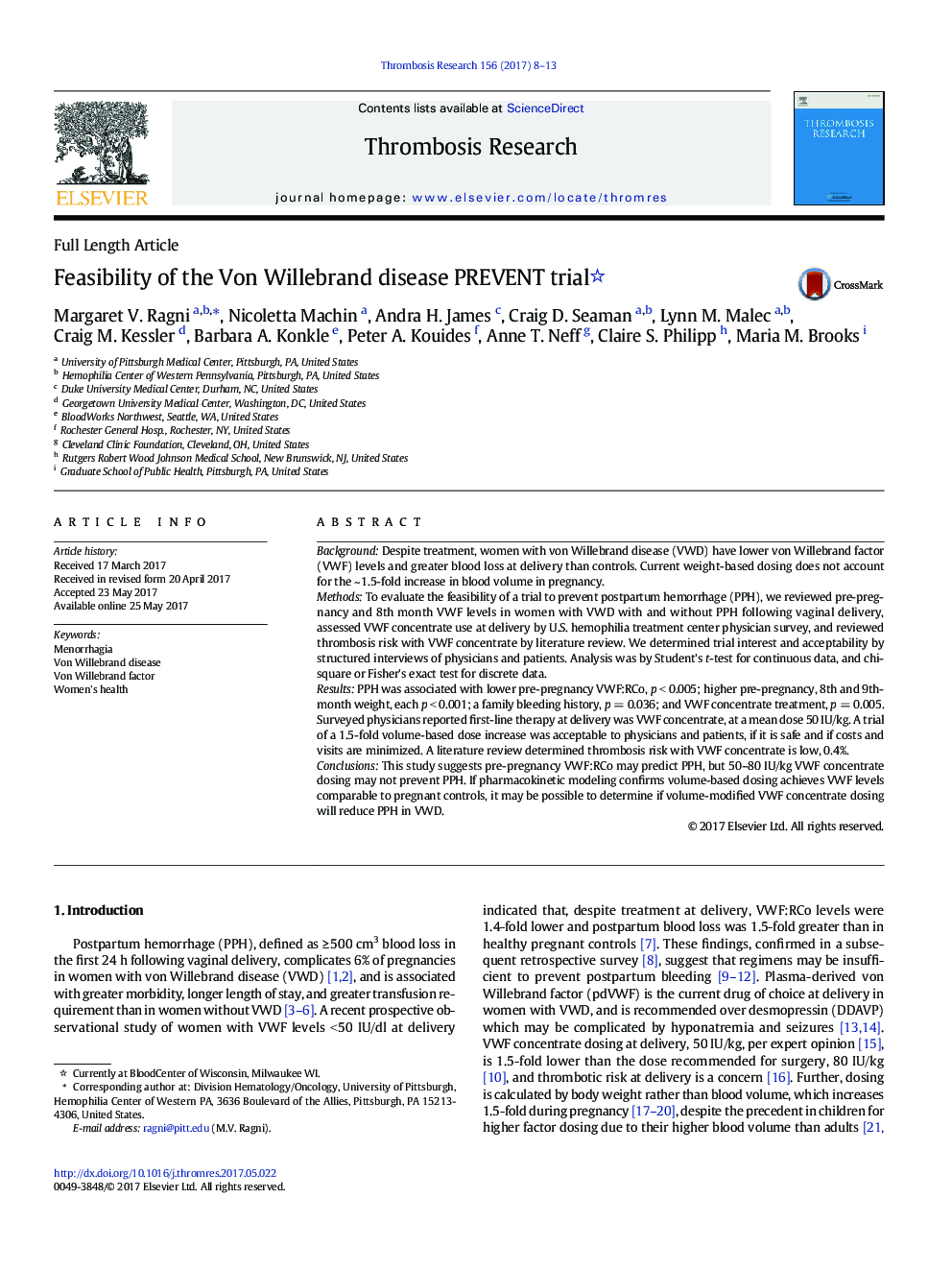| کد مقاله | کد نشریه | سال انتشار | مقاله انگلیسی | نسخه تمام متن |
|---|---|---|---|---|
| 5621871 | 1579187 | 2017 | 6 صفحه PDF | دانلود رایگان |

- Despite treatment, women with von Willebrand disease (VWD) have greater blood loss than controls.
- We performed a feasibility study for the PREVENT PPH clinical trial by reviewing pre- and post-pergnancy VWF and weight.
- A physician survey indicated 50Â IU/kg VWF concentrate, the currently dose, does not prevent PPH, despite rare thrombosis by literature review.
- A trial using 1.5-fold the current dose, based on blood volume changes in pregnancy, may be feasible and warranted.
BackgroundDespite treatment, women with von Willebrand disease (VWD) have lower von Willebrand factor (VWF) levels and greater blood loss at delivery than controls. Current weight-based dosing does not account for the ~ 1.5-fold increase in blood volume in pregnancy.MethodsTo evaluate the feasibility of a trial to prevent postpartum hemorrhage (PPH), we reviewed pre-pregnancy and 8th month VWF levels in women with VWD with and without PPH following vaginal delivery, assessed VWF concentrate use at delivery by U.S. hemophilia treatment center physician survey, and reviewed thrombosis risk with VWF concentrate by literature review. We determined trial interest and acceptability by structured interviews of physicians and patients. Analysis was by Student's t-test for continuous data, and chi-square or Fisher's exact test for discrete data.ResultsPPH was associated with lower pre-pregnancy VWF:RCo, p < 0.005; higher pre-pregnancy, 8th and 9th-month weight, each p < 0.001; a family bleeding history, p = 0.036; and VWF concentrate treatment, p = 0.005. Surveyed physicians reported first-line therapy at delivery was VWF concentrate, at a mean dose 50 IU/kg. A trial of a 1.5-fold volume-based dose increase was acceptable to physicians and patients, if it is safe and if costs and visits are minimized. A literature review determined thrombosis risk with VWF concentrate is low, 0.4%.ConclusionsThis study suggests pre-pregnancy VWF:RCo may predict PPH, but 50-80 IU/kg VWF concentrate dosing may not prevent PPH. If pharmacokinetic modeling confirms volume-based dosing achieves VWF levels comparable to pregnant controls, it may be possible to determine if volume-modified VWF concentrate dosing will reduce PPH in VWD.
Journal: Thrombosis Research - Volume 156, August 2017, Pages 8-13